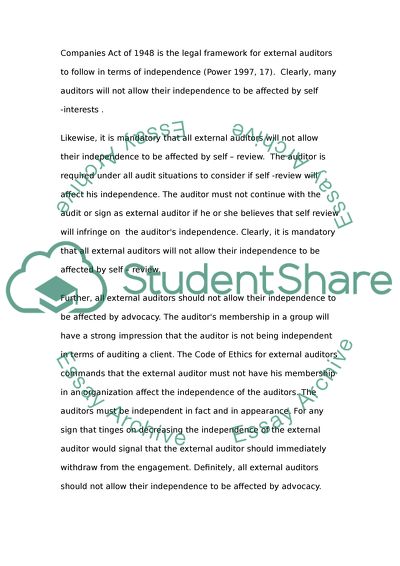Cite this document
(“Analysis of the Benchmark for External Auditors Assignment”, n.d.)
Analysis of the Benchmark for External Auditors Assignment. Retrieved from https://studentshare.org/finance-accounting/1514448-auditing-and-accounting-ethics-bachelor-essay
Analysis of the Benchmark for External Auditors Assignment. Retrieved from https://studentshare.org/finance-accounting/1514448-auditing-and-accounting-ethics-bachelor-essay
(Analysis of the Benchmark for External Auditors Assignment)
Analysis of the Benchmark for External Auditors Assignment. https://studentshare.org/finance-accounting/1514448-auditing-and-accounting-ethics-bachelor-essay.
Analysis of the Benchmark for External Auditors Assignment. https://studentshare.org/finance-accounting/1514448-auditing-and-accounting-ethics-bachelor-essay.
“Analysis of the Benchmark for External Auditors Assignment”, n.d. https://studentshare.org/finance-accounting/1514448-auditing-and-accounting-ethics-bachelor-essay.


